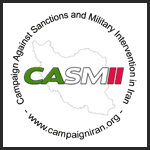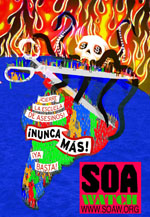Le Monde diplomatique, February 9, 2010, Marie-Dominique Charlier:-
Estimates of the numbers of PMC personnel in Afghanistan vary from 130,000 to 160,000, the second-largest deployment after Iraq, which it is set to overtake in the near future. The 30,000 extra US troops bound for Afghanistan could be accompanied by up to 56,000 additional contractor personnel. PMC contractors will then account for nearly two-thirds of all the Pentagon’s personnel in Afghanistan, the highest ratio in any conflict in the history of the US.The best known PMCs, Xe (Blackwater), DynCorp, MPRI (Military Professional Resources Inc) and Kellog Brown and Root, are all part of a grouping known as Private Security Companies of Afghanistan. Their involvement takes a big bite out of the funds intended for the reconstruction of the Afghan National Army (ANA).
Although they are supposed to play an auxiliary role to the coalition, and to the US army, the legal status of the PMCs is vague. But behind the “turnkey” solutions they offer lie big business interests, which influence military decisions in the field. There is a convergence of financial interests between the PMCs and big US industrial conglomerates: most PMCs have been bought up by conglomerates through mergers and acquisitions, many since 2001.
Moreover, the boom in outsourcing coincides with the need of the US military to assure their own redeployment: most of the senior management of the PMCs are former military officers, who find it easy to make the transition from the public to the private sector. Former senior officers of US armed forces working for PMCs enjoy a close relationship with the Pentagon, which gives them easy access to classified information and guarantees a degree of impunity.
A British contractor said recently that the Americans, the British and other armed forces were in Afghanistan to win the war, but for his firm, the more the security situation deteriorated the better. This is not necessarily compatible with conflict stabilisation and the “Afghanisation” of peace.




















10 February, 2010 at 6:04 am
[…] Read more… […]